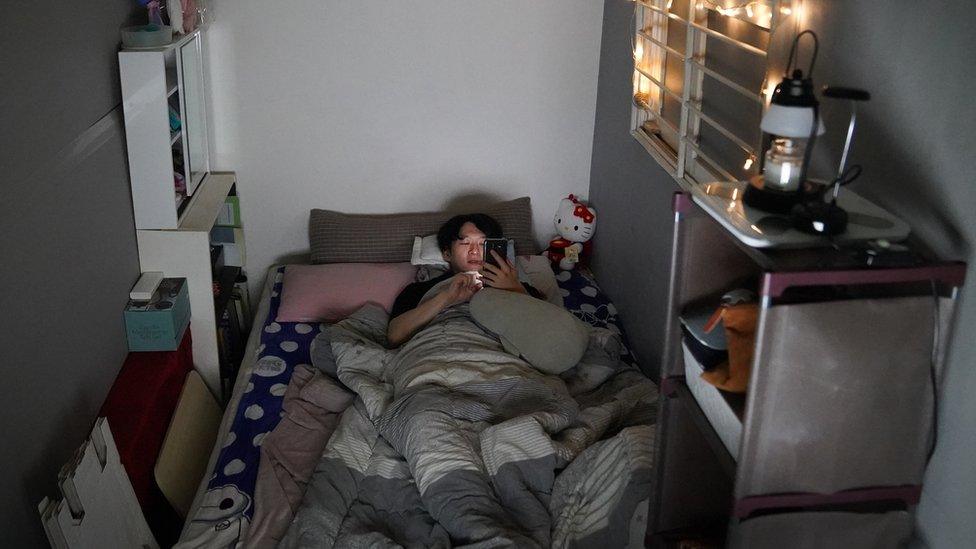Parasite: Will Gompertz reviews the best picture Oscar winner ★★★★☆
- Published
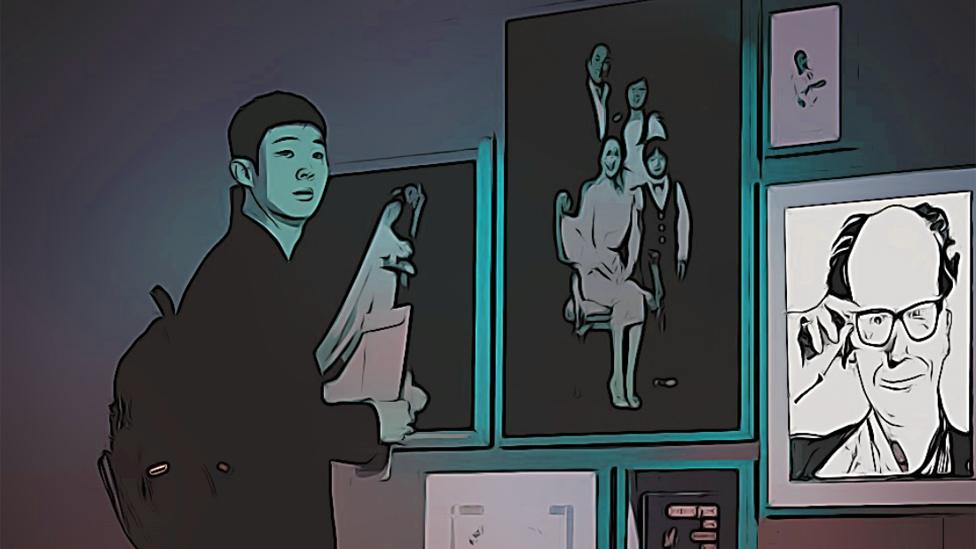
You don't get many movies like Parasite, nowadays.
In a celluloid landscape dominated by comic-book blockbusters, re-booted franchises, and opulent Netflix Originals, small-scale domestic social satires about class and inequality are a rarity.
That's because the modern movie mogul thinks films like Parasite don't belong on the silver screen. They're better suited to the home cinema and one of those massive, incongruous TVs that make it look as if someone's parked the family SUV in the front room.
Meanwhile, the modern television mogul thinks films like Parasite should be stretched out beyond two hours into an Emmy-winning 10-season box set. And so, in the end, movies like Parasite don't get made at all. And that's why they are a rarity.
It's also why critics take to films like Parasite with all the fervour of my wife knocking back a double gin after Dry January. Dulled senses tingle once more, an idling brain sparks; you succumb to the old-fashioned power of story-telling.
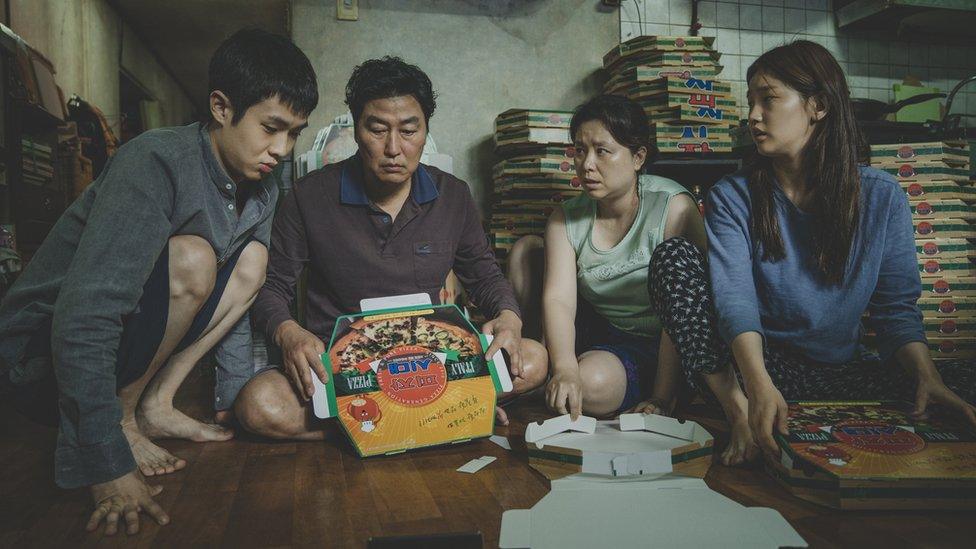
The Kim family is struggling when we first meet them, before they start to put their "plan" in place
There are no car chases in Parasite, nor are there any CGI intergalactic battles. Instead, director Bong Joon Ho transports you into the seemingly mundane lives of two Korean families who, through happenstance, become ever more entwined.
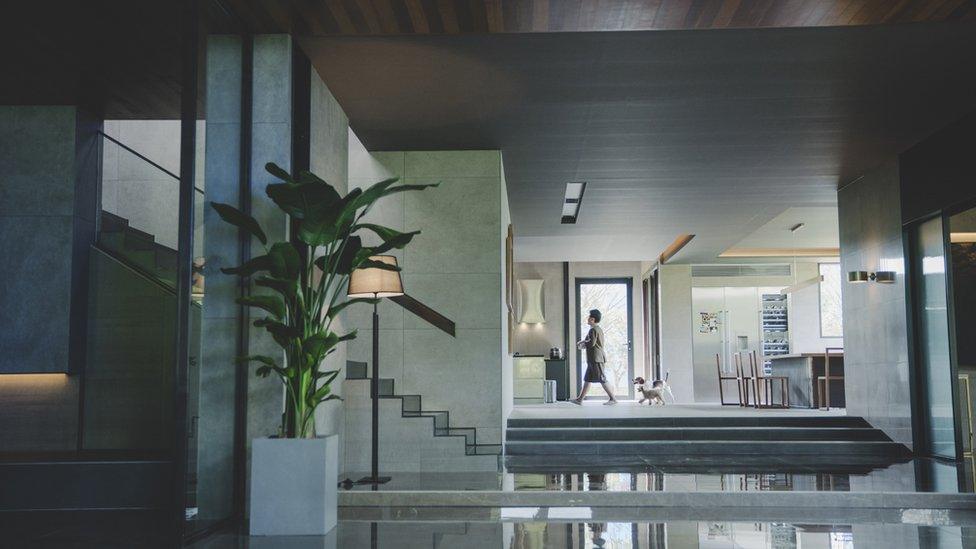
The Park's luxury home is in stark contrast to the Kim family's basic dwelling needing fumigation
In the unwritten rules of social engagement, as decreed by the pitiless market economics of capitalism, they should never cross paths. One family lives in poverty in a squalid subterranean flat at the wrong end of the wrong end of town.
The other lot enjoy the life of Riley in their architect-designed modernist mansion, the sort of glass and concrete statement property that attracts new money like an auction of really bad contemporary art.
Kim Ki-taek (Song Kang Ho) is the patriarch of the have-not household. He can look back on a 20-year business career notable for its remarkable consistency: whatever he runs always goes bust.
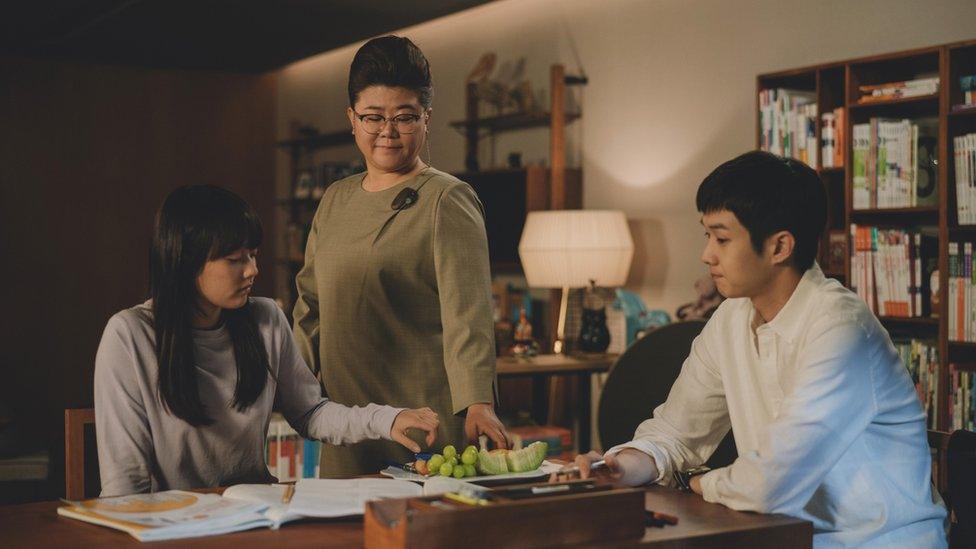
Ki-woo finds himself "tutoring" the Park's daughter Da-hye under the watchful eye of the housekeeper Moon-gwang
His wife, Chung-sook (Chang Hyae Jin), is a former hammer-throwing track and field national medallist, who can still crush you with a look, but is otherwise unemployed like her husband.
As is their arty daughter Ki-jung (Park So Dam) and her geeky younger brother Ki-woo (Choi Woo Shik). Both kids flunked their university entrance exams.
This is a family who really didn't expect much from life, but even that turned out to be a pipe dream. To make matters worse, a local drunk has identified their basement window as his go-to alfresco urinal.
Meanwhile, over on easy street, the freshly minted, slightly younger Park family are having a lovely time. Mr Park (Lee Sun Kyun) is as good at business as Ki-Taek is bad.
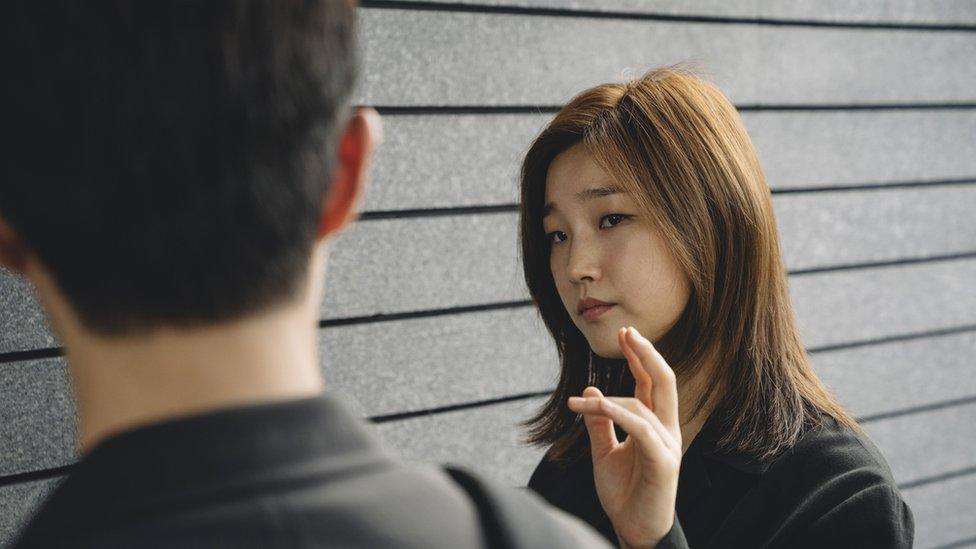
Ki-jung prepares for her role as "art tutor" to the Park's son
His IT firm hasn't gone bust, it's gone global! The money is coming in faster than a Bondi Beach surfer pursued by a shark. His beautiful wife (Cho Yeo Jeong) flits in and out of their beautiful house while their two beautiful kids are looked after by a loyal housekeeper (Lee Jung Eun) in a beautifully ironed uniform.
And there you have it, a picture of polarisation, where two families of the same size, living in the same city, are worlds apart. Until, that is, a friend of Ki-Woo's pops over to his dingy dwelling and suggests he take over his holiday job tutoring the Park's spoilt teenage daughter.
Ki-Woo thinks it highly unlikely he'd get the gig. But then, he hadn't taken into account Mrs Park's naivety, his mother's eye for the main chance, and the possibility of repurposing his sister's artistic talents as a manufacturer of fake degree certificates.
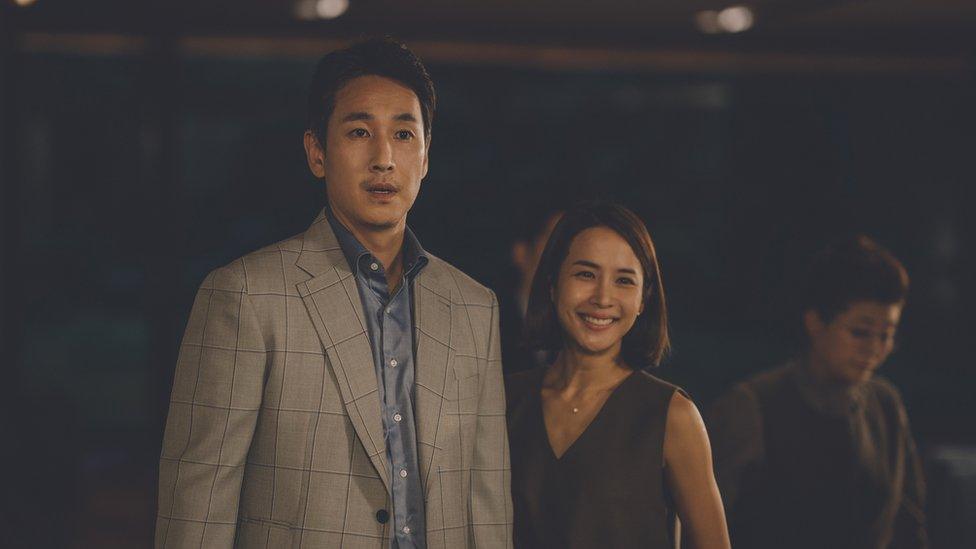
The wealthy Park couple (Sun-kyun Lee and Yeo-jeong Jo), who don't like their staff "crossing the line"
Before he knows it, Ki-woo is upstairs in the eerily spotless big house going beyond his strict academic brief with the stroppy daughter Da-hye (Jung Ziso), while his crafty sister, who has also inveigled her way into this nouveau-rich sanctum, teaches art to the Park's hyper-active son in the kitchen.
I will say no more about the plot, other than it thickens in ways you can't imagine but are always believable. It is no surprise that director Bong Joon Ho has been lauded and awarded for Parasite. His script draws you into this darkest of comedies so completely you start to smell Ki-Taek's stale onion-scented sweat.
This is not your average social drama film. It goes further than the likes of Revolutionary Road or Shoplifters, moving into the realms of a thriller, and at times, touching on the sensibilities of a zombie flick. It's weird and potent and well directed.
The camera is frequently allowed to linger to the point of awkwardness, challenging the characters to maintain their composure as the tangled web of deceit starts to fray at the seams.
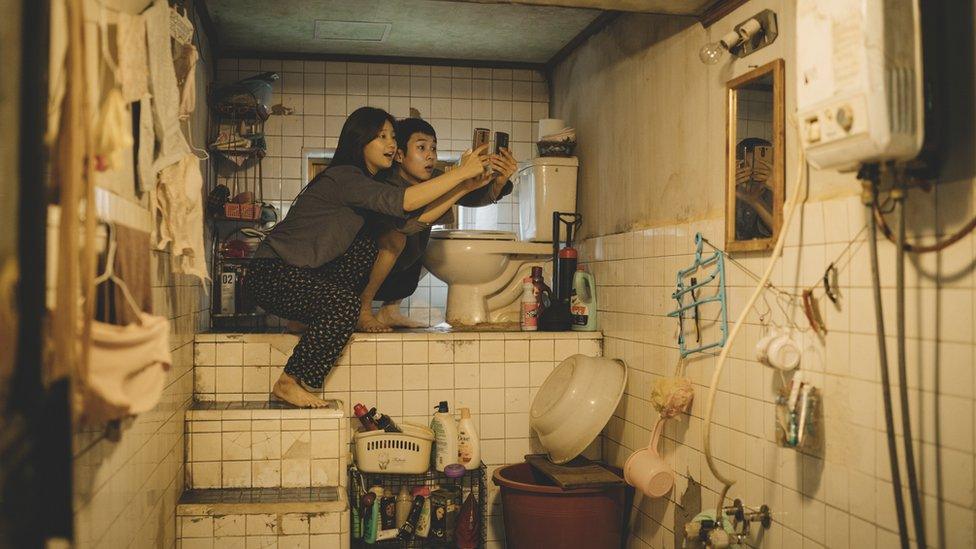
Ki-jung (So-dam Park) and Ki-woo (Woo-sik Choi) try to get internet connection from someone else's wifi
It is a distinctly Korean film, but the themes and characters are universal and timeless. Dickens knew them, as did Shakespeare. And so do you.
The movie's title conveys the humiliation endured by the poor forced to live off the wealthy, for whom the word parasite is equally applicable. It is also questioning the political, economic and commercial philosophies upon which we build our lives.
For the most part, the film does this with incisiveness and intelligence. Bong Joon Ho does not judge his characters, there is no pity or resentment - this isn't a Korean Downton Abbey, playing on established rules of a class system.
It is a reflection on how people act and react, are seen and not seen, depending on their financial status. It asks us what we would do if desperate. You'd probably leach off someone else's internet connection.
But would you fumigate your kitchen by opening the basement window when a lorry passed by spraying insect-killer? Probably not, but then you might not share Ki-Taek's enterprising spirit.
Parasite is a beautifully shot, sympathetically told, intimate social drama, which is paced to perfection until the end when what was a subtle, nuanced work of art lurches into the melodramatic, like a bloke who has been told he smells of old radishes once too often.
Maybe that is because Bong Joon Ho refuses to play by the rules, and the clashing of genres is an echo of his two families brought together from opposite ends of the social spectrum, each accentuating the reality of the other.

Read more about this topic
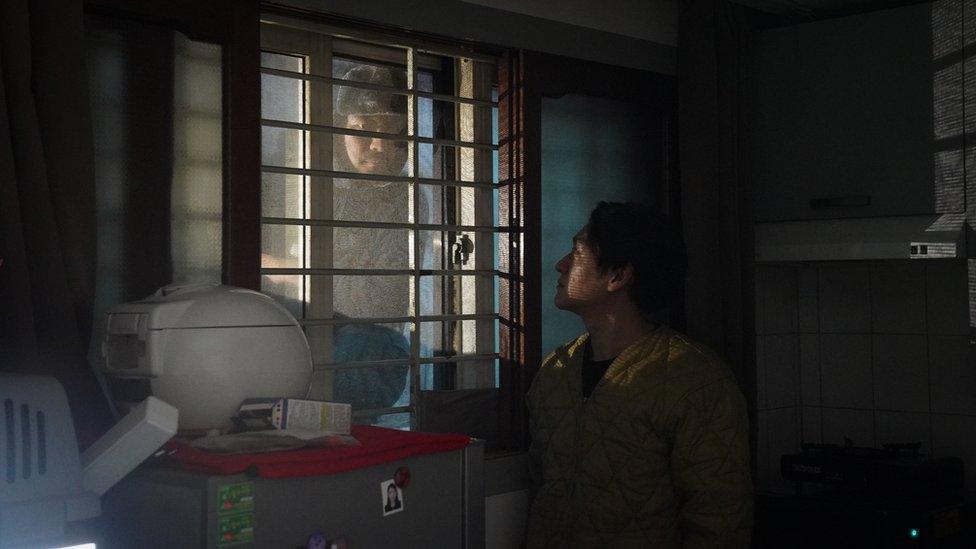
The street offers a direct view into Oh kee-cheol's apartment

Recent reviews by Will Gompertz
Follow Will Gompertz on Twitter, external
- Published17 January 2020
- Published5 October 2019
- Published10 February 2020
